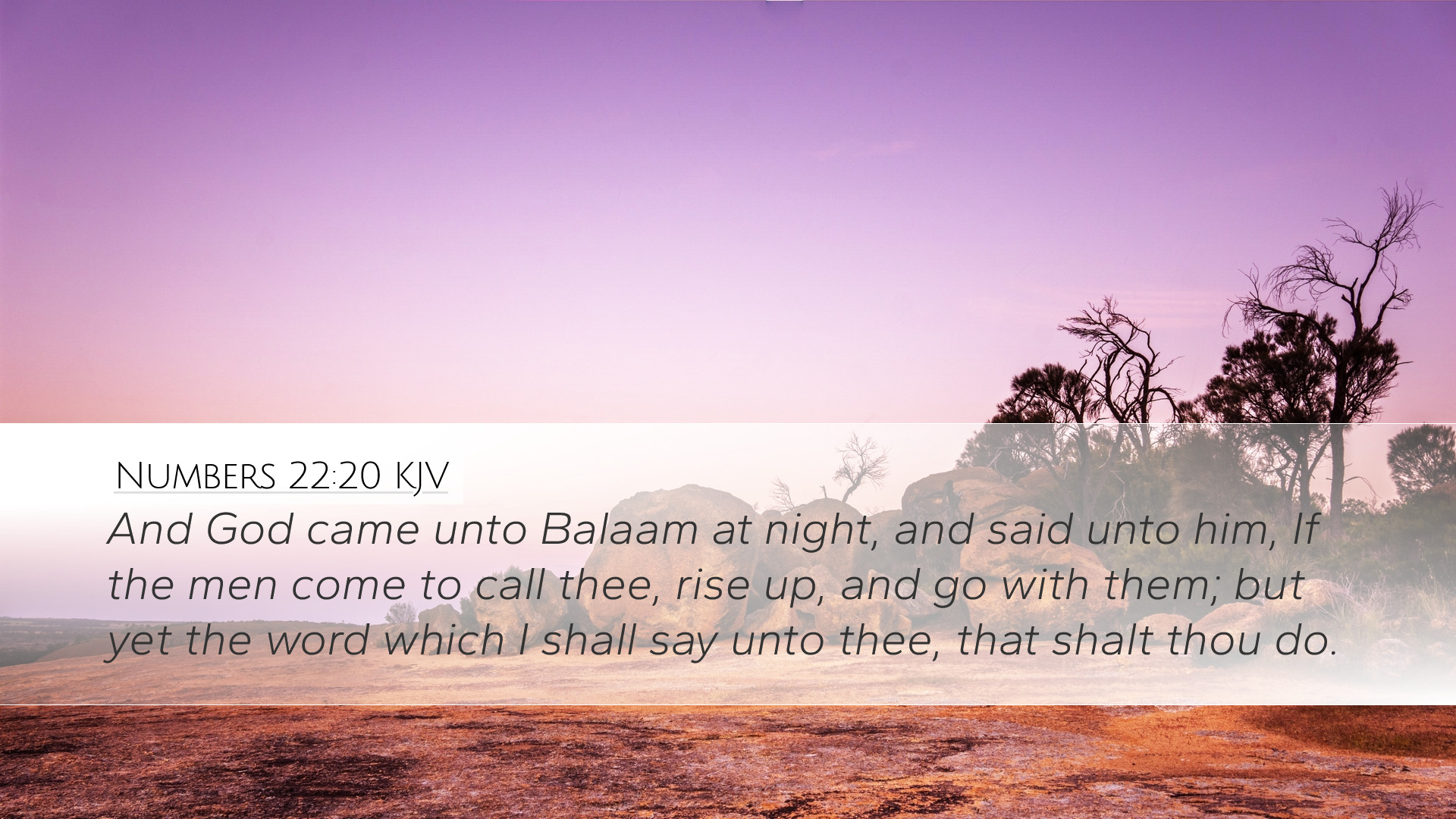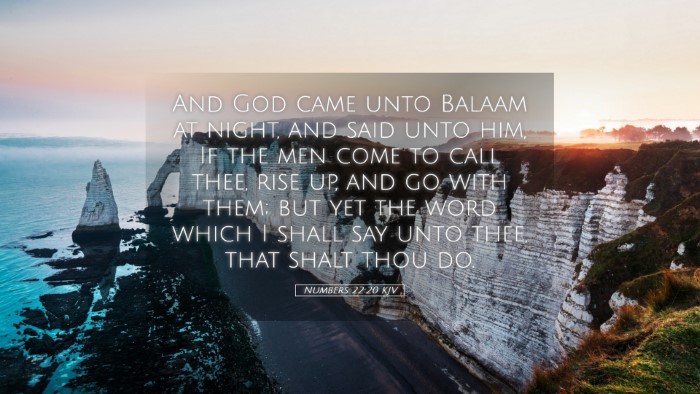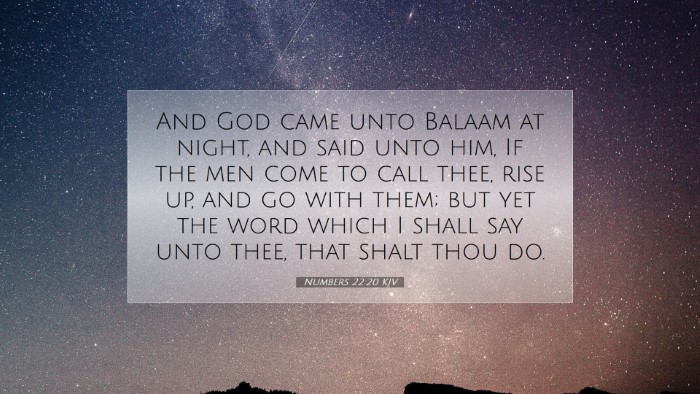Bible Commentary on Numbers 22:20
Numbers 22:20 reads: "And God came unto Balaam at night, and said unto him, If the men come to call thee, rise up, and go with them; but yet the word which I shall say unto thee, that shalt thou do." This verse plays a significant role in the narrative of Balaam, a figure often discussed in theological studies for his complex character and the lessons he embodies. Below, we will summarize insights from renowned public domain commentaries by Matthew Henry, Albert Barnes, and Adam Clarke to deepen our understanding of this passage.
Context of the Passage
Numbers 22 recounts the journey of the Israelites as they prepare to enter the Promised Land and the opposition they face from Balak, the king of Moab. Balak seeks the help of Balaam, a revered seer, to curse Israel. The backdrop of this verse is Balaam's initial response to Balak's messengers and God’s ongoing revelation to him.
Insights from Matthew Henry
Matthew Henry emphasizes that this verse illustrates God's sovereignty and the underlying principle of divine communication:
- Divine Response: Henry notes that God's fearsome might and authority are evident as He interacts with Balaam at night, indicating that God’s word is paramount.
- Conditional Permission: The phrase "If the men come to call thee" suggests a conditional permission from God. This highlights that divine guidance requires human agency—Balaam must first make a choice.
- Obedience to Divine Command: The instruction to Balaam emphasizes that while he may go with the men, he is bound by what God ultimately communicates to him, stressing the necessity of obedience to divine will.
Insights from Albert Barnes
Albert Barnes provides a critical interpretation focusing on the tension between free will and divine sovereignty:
- Divine Will versus Human Desire: Barnes articulates that God's permission for Balaam to go signifies a permissive will that allows humans the latitude to operate within their desires, while still under divine oversight.
- Balaam’s Character: He emphasizes Balaam's duality—his desire for gain juxtaposed with his role as a prophet. This internal conflict is pivotal in understanding Balaam’s subsequent actions and motivations.
- God’s Foreknowledge: Barnes points to God's foreknowledge as critical in narrating Balaam's path, pre-empting the eventual outcome that reveals the futility of opposing God’s chosen people.
Insights from Adam Clarke
Adam Clarke expands on the theological implications of this interaction between God and Balaam:
- Nighttime Revelation: Clarke notes that God’s appearance at night is significant, representing a period when Balaam could contemplate his choices away from the distractions of the day. This sets a tone of solemnity and gravity in the revelation.
- Humans in Dialogue with God: He highlights Balaam's response to divine communication, which showcases human ability to engage in observable dialogue with God—inviting reflection on personal interaction with the divine.
- Moral Responsibility: Clarke argues that this verse highlights moral agency. Balaam is warned of the importance of adhering to God’s commands, reminding believers of their accountability in their actions.
Theological Themes
This verse encapsulates several critical theological themes:
- The Nature of Revelation: It demonstrates God’s willingness to communicate with humans, emphasizing that understanding divine will is a process that involves attentiveness to God's voice.
- Conditionality in Divine Guidance: There is a weighty implication that God allows humans to make choices while providing guidance meant to direct them toward righteousness.
- Consequences of Choices: The eventual outcome of Balaam’s journey reflects on the consequences of ignoring divine legislation and the pursuit of personal gain.
Practical Applications
Pastors, students, and theologians can derive several practical applications from this passage:
- Understanding Divine Guidance: Reflect on how God guides individuals today and the importance of discerning His voice amid competing calls.
- Moral Choices: This passage serves as a reminder of our moral responsibility in the decisions we make and how those choices impact our relationship with God and others.
- Engaging with God: Encourage regular communication with God through prayer, scripture, and reflection to ensure alignment with His will in our lives.
Conclusion
Balaam's encounter with God in Numbers 22:20 reveals profound insights into the nature of God’s communication with humanity, free will, and the intricacies of obedience. The diverse perspectives from Matthew Henry, Albert Barnes, and Adam Clarke serve to enrich our understanding of the passage and provoke thoughtful application among believers. As we meditate on this scripture, may we grow in our awareness of God's leading and our response to His call.


